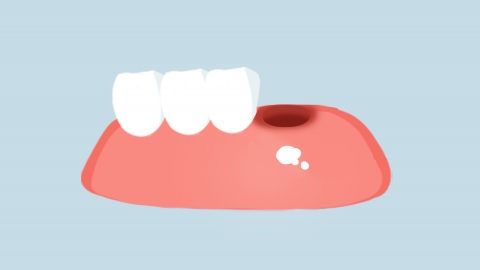Can gingival polyps heal on their own?
Generally, whether gingival polyps can heal spontaneously depends on the specific condition of the disease, mainly determined by the cause, nature of the lesion, and whether timely intervention is performed. If discomfort occurs—such as bleeding, pain, or difficulty chewing—it is recommended to seek medical evaluation promptly. The detailed analysis is as follows:

If a gingival polyp is caused by mild local irritation—for example, shallow interproximal caries leading to food debris accumulation that irritates the gum and results in a small polyp—it may gradually improve or even resolve on its own, provided the irritant is promptly removed, the lesion remains benign, and no significant tissue overgrowth has occurred. In such cases, the gingival tissue has a certain self-repair capacity; once the irritant is eliminated, inflammation subsides, and the polyp may shrink and eventually disappear.
However, if the gingival polyp arises from more serious underlying causes—such as deep dental caries, pulp necrosis, long-term pressure from dental calculus, or if the polyp has already shown obvious overgrowth and increased firmness—spontaneous healing is unlikely without timely treatment. Persistent irritants will continuously worsen gum damage, potentially causing the polyp to enlarge and lead to symptoms like bleeding, pain, or infection. If left untreated for a prolonged period, this may increase the risk of pathological changes. Medical intervention is required to remove the polyp and treat the underlying condition for proper recovery.
Upon discovering a gingival polyp, it's important to undergo an oral examination to identify the exact cause and avoid delays due to self-diagnosis. Maintain good daily oral hygiene: brush teeth twice a day, rinse after meals, and have regular professional cleanings to remove calculus and reduce gum irritation. If the polyp persists, grows larger, or causes bleeding or pain, prompt medical attention is necessary. Appropriate treatment should be selected based on the clinical assessment to prevent worsening and protect overall oral health.




